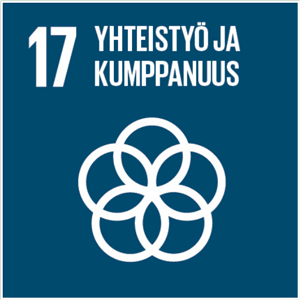Our work
Global Development Challenges We Aim to Address
Gender Inequality
In secondary schools in rural Tanzania studied by LiiKe, as many as nine out of ten girls do not complete their education successfully.
Climate crisis
Climate change is the greatest threat to health and well-being!
The global learning crisis
In LiiKe’s area of operation in Sub-Saharan Africa, 89% of ten-year-old children who attend school cannot understand a simple written text, due to learning poverty.
Goals and Actions
1
Supporting Education Through Physical Activity
LiiKe supports children’s and youth’s education by strengthening their physical and mental well-being through physical activity and health education.
Integrating physical activity into the school day helps create a safe, engaging, and supportive learning environment.
Integrating physical activity into the school day helps create a safe, engaging, and supportive learning environment.
2
Quality Physical end Health Education
LiiKe collaborates with the Ministries of Education, Sports, and Internal Affairs in its partner countries, as well as with teacher training institutions and teachers’ unions, to improve the quality of physical education and increase the number of qualified teachers.
LiiKe also engages in advocacy work to strengthen the recognition and integration of physical education in national curricula.
LiiKe also engages in advocacy work to strengthen the recognition and integration of physical education in national curricula.
3
A more sustainable, healthy, and equitable global world
LiiKe’s work is grounded in a human rights-based approach.
Our activities strengthen the ability of target groups to recognize, claim, and exercise their rights, while also enhancing the capacity of authorities to respect, promote, and protect human rights and ensure their fulfillment.
Our projects are not just about participating in sports — they also raise awareness and open dialogue on broader themes such as gender equality, health, well-being, and the environment.
Our activities strengthen the ability of target groups to recognize, claim, and exercise their rights, while also enhancing the capacity of authorities to respect, promote, and protect human rights and ensure their fulfillment.
Our projects are not just about participating in sports — they also raise awareness and open dialogue on broader themes such as gender equality, health, well-being, and the environment.
Results
A sustainable, healthy, and equitable world
Key Agenda 2030 Goals

Good Health and Well-being

Gender Equality
Achieve gender equality and empower all women and girls

Promoting Climate Action and Human Rights

Partnerships and Collaboration
Engaging Sports Sector Professionals in Advancing Sustainable Development Locally and Globally

Quality Education – Ensure inclusive and equitable quality education and promote lifelong learning opportunities for all.
– Increased school attendance and improved learning outcomes among children and youth
– Number of students completing school
– Improved quality of physical and health education and a growing number of qualified teachers
– A safer environment that supports well-being and learning
Gender Inequality
In secondary schools in rural Tanzania studied by LiiKe, as many as nine out of ten girls do not complete their education successfully.
Goals and Actions
1
Supporting Education Through Physical Activity
LiiKe supports children’s and youth’s education by strengthening their physical and mental well-being through physical activity and health education.
Integrating physical activity into the school day helps create a safe, engaging, and supportive learning environment.
Integrating physical activity into the school day helps create a safe, engaging, and supportive learning environment.
Climate crisis
Climate change is the greatest threat to health and well-being!
Goals and Actions
2
Quality Physical end Health Education
LiiKe collaborates with the Ministries of Education, Sports, and Internal Affairs in its partner countries, as well as with teacher training institutions and teachers’ unions, to improve the quality of physical education and increase the number of qualified teachers.
LiiKe also engages in advocacy work to strengthen the recognition and integration of physical education in national curricula.
LiiKe also engages in advocacy work to strengthen the recognition and integration of physical education in national curricula.
The global learning crisis
In LiiKe’s area of operation in Sub-Saharan Africa, 89% of ten-year-old children who attend school cannot understand a simple written text, due to learning poverty.
Goals and Actions
3
A more sustainable, healthy, and equitable global world
LiiKe’s work is grounded in a human rights-based approach.
Our activities strengthen the ability of target groups to recognize, claim, and exercise their rights, while also enhancing the capacity of authorities to respect, promote, and protect human rights and ensure their fulfillment.
Our projects are not just about participating in sports — they also raise awareness and open dialogue on broader themes such as gender equality, health, well-being, and the environment.
Our activities strengthen the ability of target groups to recognize, claim, and exercise their rights, while also enhancing the capacity of authorities to respect, promote, and protect human rights and ensure their fulfillment.
Our projects are not just about participating in sports — they also raise awareness and open dialogue on broader themes such as gender equality, health, well-being, and the environment.
Results
A sustainable, healthy, and equitable world
Key Agenda 2030 Goals

Good Health and Well-being

Gender Equality
Achieve gender equality and empower all women and girls

Promoting Climate Action and Human Rights

Partnerships and Collaboration
Engaging Sports Sector Professionals in Advancing Sustainable Development Locally and Globally

Quality Education – Ensure inclusive and equitable quality education and promote lifelong learning opportunities for all.
– Increased school attendance and improved learning outcomes among children and youth
– Number of students completing school
– Improved quality of physical and health education and a growing number of qualified teachers
– A safer environment that supports well-being and learning